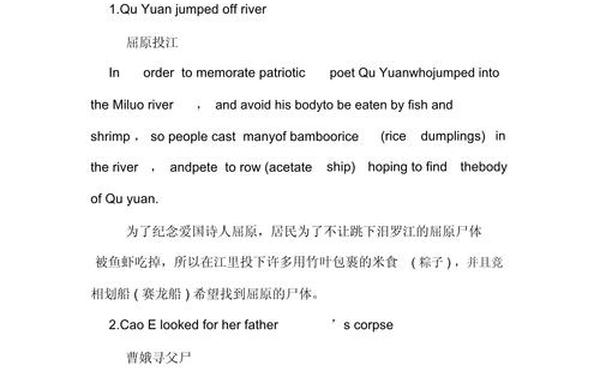Dragon Boat Festival: A Cultural Celebration of China
The Dragon Boat Festival, also known as Duanwu Festival (端午节), is one of China’s most cherished traditional holidays, celebrated on the fifth day of the fifth lunar month (usually in June). This festival, with a history spanning over 2,000 years, combines rich cultural heritage, historical legends, and vibrant customs. Here’s an introduction to its origins, traditions, and significance.
1. Historical Origins
The festival is closely linked to Qu Yuan (340–278 BC), a patriotic poet and statesman of the Chu Kingdom during the Warring States Period. Disheartened by political corruption and the invasion of his homeland, Qu Yuan drowned himself in the Miluo River. To honor his sacrifice, villagers raced boats to search for his body and threw zongzi (sticky rice dumplings) into the water to prevent fish from eating his remains. This act evolved into today’s dragon boat races and the tradition of eating zongzi .
Other legends include commemorating Wu Zixu, a loyal minister, and Cao E, a filial daughter who sacrificed herself to save her father. These stories highlight themes of loyalty, sacrifice, and filial piety .
2. Traditional Customs
A. Dragon Boat Racing
Dragon boat races are the festival’s hallmark. Teams paddle elaborately decorated boats to the rhythm of drums, symbolizing the villagers’ desperate search for Qu Yuan. Modern races, such as the Hong Kong International Dragon Boat Races, blend tradition with sportsmanship and attract global participants .
B. Eating Zongzi
Zongzi (粽子), pyramid-shaped dumplings wrapped in bamboo leaves, are filled with glutinous rice, meats, or sweet beans. Families often gather to make zongzi, passing down recipes through generations. This tradition symbolizes unity and remembrance .
C. Protective Rituals

3. Cultural Significance
The Dragon Boat Festival reflects Chinese values such as loyalty, community spirit, and reverence for nature. In 2009, UNESCO recognized it as Intangible Cultural Heritage, highlighting its global cultural impact. Today, the festival bridges tradition and modernity, with events ranging from village rituals to international competitions .
Sample Essay Paragraph (Personal Experience)
"Last Dragon Boat Festival, my family gathered to make zongzi. Grandma taught me how to fold bamboo leaves into cones and fill them with sticky rice and red beans. Though my zongzi looked clumsy, everyone laughed and praised my effort. In the afternoon, we joined the lively dragon boat races by the river. The drumbeats echoed across the water, and the cheers of the crowd filled the air. This festival not only connects me to our ancestors but also strengthens family bonds."
Key Vocabulary for Writing
By incorporating history, traditions, and personal reflections, your essay will vividly showcase the Dragon Boat Festival’s enduring charm and cultural depth. Let the spirit of Qu Yuan’s poetry and the thunder of dragon boat drums inspire your words!

